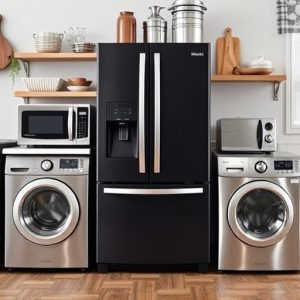Refrigerator coolant leaks pose significant risks to both food safety and property damage, causing spoilage of perishable items and water damage. Regular maintenance checks and timely repairs are crucial for mitigating these hazards and preserving the longevity of major appliances. Early detection through signs like hissing, dripping, or moisture is vital to prevent food waste and ensure safe family meals. Modern technologies and immediate action can safeguard appliances and food quality, with professionals offering expert solutions for efficient leak sealing. Regular maintenance extends appliance lifespans and ensures optimal kitchen performance.
Refrigerator coolant leaks can go unnoticed, posing significant risks to food safety. This article guides you through understanding the causes and impacts of such leaks on your food and appliances. Learn about common signs, effective detection methods, quick remediation steps, and regular maintenance practices for your major appliances. By knowing how to prevent food spoilage, you can ensure the longevity of your refrigerator and maintain high-quality meals.
- Understanding Refrigerator Coolant Leaks: Causes and Risks
- The Impact of Leaks on Food Safety and Quality
- Common Signs Indicating a Coolant Leak in Your Fridge
- Effective Detection Methods for Early Identification
- Preventing Food Spoilage: Quick Remediation Steps
- Maintaining Your Major Appliance: Regular Checks and Maintenance
Understanding Refrigerator Coolant Leaks: Causes and Risks
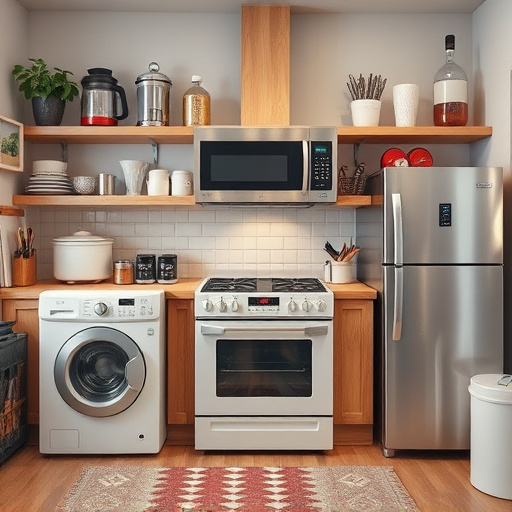
Refrigerator coolant leaks are a common issue that can have significant implications for your home’s major appliances and food safety. Understanding the causes and risks is essential for prompt action to prevent food spoilage. These leaks often stem from various factors, such as worn-out gaskets or seals, corrosion inside the fridge due to poor ventilation, or even damage during transport or installation. Over time, these issues can lead to water accumulation, causing visible or hidden leaks.
The risks associated with coolant leaks are twofold. Firstly, it leads to food spoilage and potential health hazards as perishable items like vegetables, dairy, and meat become unsalvageable due to moisture damage. Secondly, significant leaks can result in water damage to other parts of your kitchen and even the surrounding area, causing further problems for homeowners. Regular maintenance checks and timely repairs are crucial to mitigating these risks and ensuring the longevity of your refrigerator, a major appliance that demands careful attention.
The Impact of Leaks on Food Safety and Quality
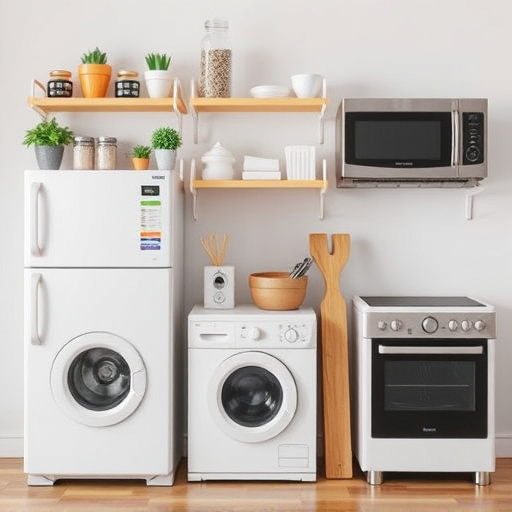
Refrigerator coolant leaks can have severe implications for food safety and quality, often going unnoticed until it’s too late. When a leak occurs, the cooling system’s effectiveness is compromised, leading to temperature fluctuations within the appliance. This instability can result in spoiled food, especially perishable items like dairy, meat, and fruits. Over time, repeated leaks or prolonged exposure to elevated temperatures can cause significant damage to major appliances, affecting their overall performance and longevity.
Moreover, the potential risks extend beyond spoilt food. Leaks can introduce moisture into electrical components, creating a hazardous environment that may lead to appliance malfunctions or even fires. Prompt detection of coolant leaks is crucial for maintaining optimal food quality and ensuring the safety of your family’s meals. Regular maintenance and early intervention can prevent these issues, keeping your refrigerator running efficiently and minimizing the risk of food waste.
Common Signs Indicating a Coolant Leak in Your Fridge
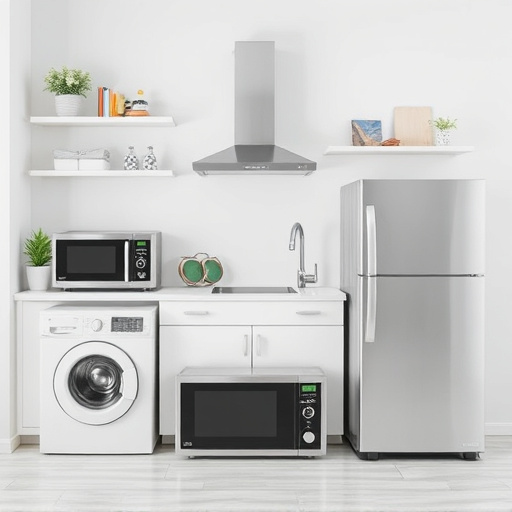
If your refrigerator is showing signs of a coolant leak, it’s crucial to act fast. Common indicators include unusual noises coming from the appliance, like hissing or dripping sounds, which could point to a broken seal or a leak in the coils. You might also notice an increase in energy consumption as the fridge struggles to maintain its temperature, leading to higher electricity bills.
Visually inspect your refrigerator for any signs of moisture, water stains, or ice buildup in areas that aren’t usually prone to them. Check the doors and seals for cracks or damage, as these can allow coolant to escape. If you notice a sweet, ammonia-like odor, it might indicate a leak and potential food spoilage risks, especially if perishable items have been stored nearby. Regular maintenance checks on major appliances like refrigerators are essential to preventing such issues and ensuring the longevity of your device.
Effective Detection Methods for Early Identification
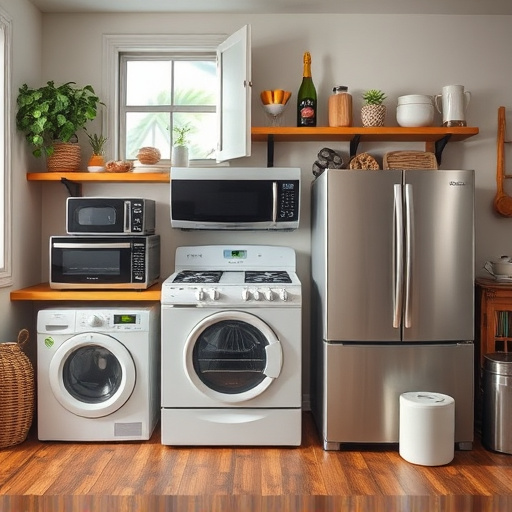
Early identification is key in preventing food spoilage caused by refrigerator coolant leaks. Modern detection methods for major appliances have evolved to include advanced technologies like sensors and smart monitoring systems. These innovations can detect even the slightest changes in temperature or humidity, red flags that often indicate a leak.
One such method involves installing smart sensors inside refrigerators that continuously monitor environmental conditions. These sensors can quickly alert users or maintenance teams if a coolant leak is suspected, allowing for immediate action to prevent damage. Additionally, some refrigerator models are now equipped with connected features that allow owners to remotely monitor their appliances’ performance and receive alerts on their smartphones, ensuring prompt response to potential issues.
Preventing Food Spoilage: Quick Remediation Steps
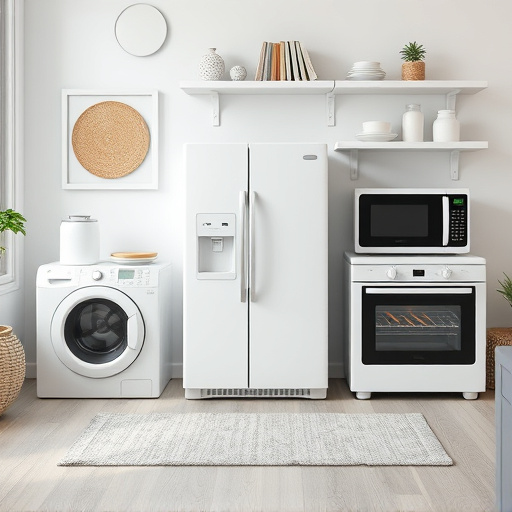
A refrigerator coolant leak can lead to significant food spoilage if left unaddressed, posing health risks and wasting valuable resources. Preventing this issue starts with regular maintenance checks. Inspect your fridge for any signs of moisture, mold, or strange odours, which could indicate a potential leak. If you notice any anomalies, take prompt action. Replacing the coolant or sealing leaks can be done by professionals who specialize in major appliances, ensuring the job is done efficiently and safely.
Quick remediation steps include turning off the refrigerator to prevent further damage, identifying the source of the leak, and cleaning up any resulting water damage. Once the leak is contained, a thorough inspection of stored food is necessary. Discard any perishable items that have been exposed to moisture for more than two hours to avoid potential foodborne illnesses. Properly wrap and store remaining non-perishables to minimize further contact with contaminated areas.
Maintaining Your Major Appliance: Regular Checks and Maintenance
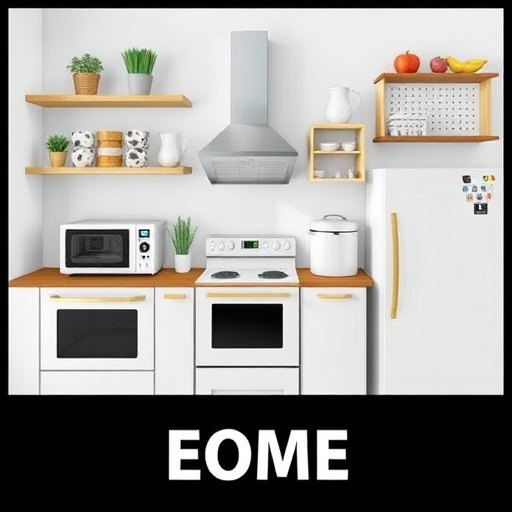
Regular checks and maintenance are vital for keeping your major appliances, like refrigerators, in top condition. It’s a simple yet effective way to prevent unexpected breakdowns and costly repairs, ensuring these workhorses in your kitchen function optimally. One of the most critical aspects is staying vigilant for any signs of a coolant leak, as this can lead to severe food spoilage risks if left unaddressed.
By implementing a few easy steps, you can maintain your refrigerator’s health. This includes periodically inspecting seals for cracks or damage, checking for any leaks or unusual noises, and ensuring proper ventilation. Addressing these issues promptly can extend the lifespan of your major appliance and keep your food fresh and safe.
In conclusion, refrigerator coolant leak detection is a vital aspect of maintaining major appliances and ensuring food safety. By understanding the causes and risks associated with leaks, recognizing common signs, and employing effective detection methods, homeowners can promptly address issues before they lead to food spoilage. Regular maintenance and quick remediation steps are key to keeping your fridge in top condition, preserving food quality, and avoiding costly repairs.
